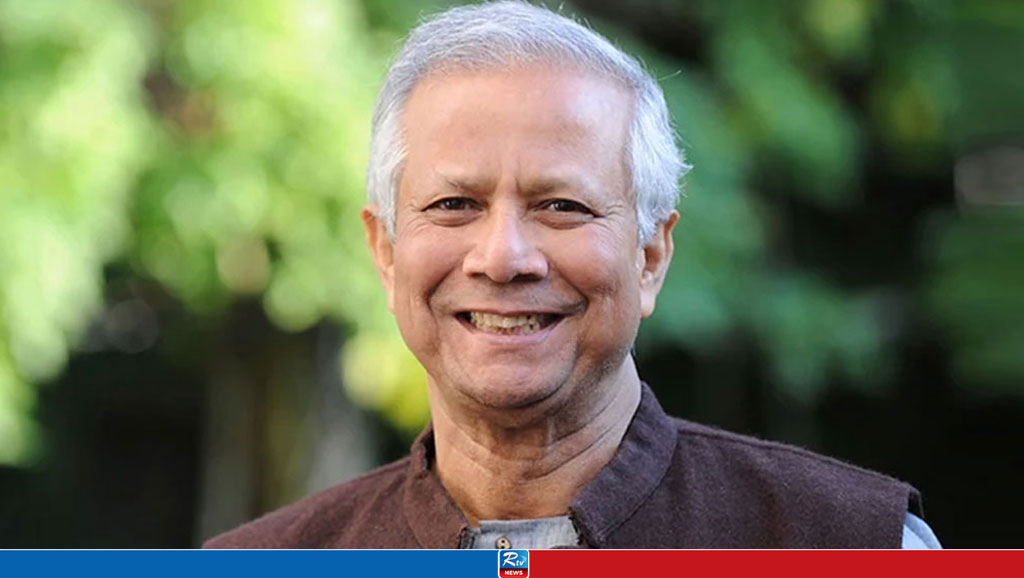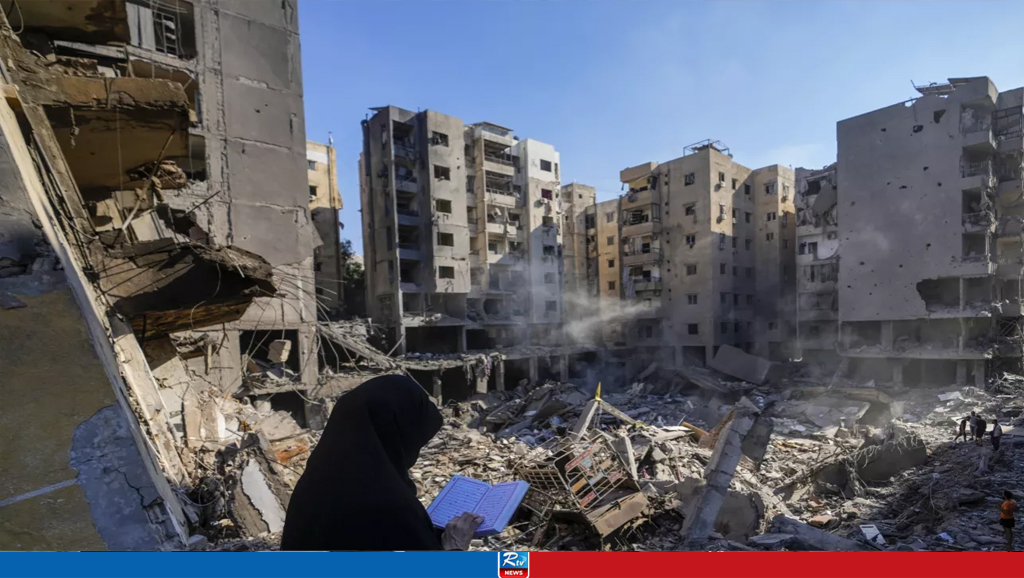As Bangladesh prepares to bid farewell to 2024 and welcome 2025, the nation reflects on a year marked by significant events and political upheaval. This was the 53rd year of Bangladesh's independence and a pivotal one due to various political, social, and cultural developments. The most striking among them was the student-led uprising that resulted in the removal of long-time ruler Sheikh Hasina. Here, we shed light on the most notable events of 2024.
Imprisonment of Dr Yunus
On January 1, 2024, Nobel Laureate Dr Muhammad Yunus was convicted of violating labour laws. He, along with three others from Grameen Telecom, was sentenced to six months of non-custodial imprisonment by Dhaka's labour court. They were granted a one-month bail pending appeal.
12th National Parliamentary Election
The 12th National Parliamentary Election was held on January 7, 2024. Amid a boycott by opposition parties, the Sheikh Hasina-led Awami League achieved victory for the fourth consecutive term. Voting took place from 8 AM to 4 PM on January 7. Out of 299 seats, the Bangladesh Awami League secured an absolute majority by winning 223 seats. The Jatiya Party and several independent candidates raised allegations of electoral fraud. The Election Commission published the official gazette of the election results on January 9, and finally, the victorious members of parliament took their oaths on January 10.
Fire at Bailey Road, Dhaka
A fire broke out in a high-rise building on Dhaka's Bailey Road, claiming the lives of 46 people. Additionally, 75 others were rescued with various injuries. The incident occurred on the night of February 29, 2024, at the Green Cozy high-rise building. The building housed multiple restaurants and shops, including notable ones such as Kachchi Bhai Restaurant, Samsung's showroom, Gadget and Gear, Illiyeen, Khana's, and Pizza Inn.
Seizure of MV Abdullah
On March 12, 2024, MV Abdullah, a Bangladeshi-flagged ship was hijacked by Somali pirates. The ship departed from Mozambique for United Arab Emirates. Onboard were 23 Bangladeshi sailors who were taken hostage by the Somali pirates. The sailors were released on April 15, following a month-long ordeal.
Nine Bangladeshis in Forbes's '30 Under 30 Asia'
On May 16, 2024, nine Bangladeshis were featured in Forbes magazine's "Forbes 30 Under 30 Asia" list. This list highlights 300 individuals under the age of 30 from across Asia. Among them, nine Bangladeshis have made their mark as young entrepreneurs, journalists, leaders, and innovators.
Anwarul Azim's Tragic Death
On May 22, 2024, the dead body of Awami League Member of Parliament (MP) Anwarul Azim was discovered in Kolkata, India. He had been missing since May 13 after travelling to India for medical treatment. Following this incident, three individuals were arrested. Until May 20, he remained untraceable. On the morning of May 22, parts of his body were found in an upscale residential complex, Sanjeeva Gardens in New Town, Kolkata. According to investigating officers, he was suffocated to death in that house on May 13.
Cyclone Remal
Cyclone Remal stuck Bangladesh from May 26 evening to May 27 morning, causing seven fatalities. It was the first depression and the first cyclonic storm of the 2024 North Indian Ocean cyclone season.
Controversy Around Ex-IGP Benazir Ahmed
Former police chief Benazir Ahmed served as the 24th Inspector General of Police of Bangladesh. In April 2024, he came under discussion following reports published in two media outlets titled "Aladdin's Lamp in Benazir's Home" and "Benazir's Resort on Forest Land." The Anti-Corruption Commission (ACC) of Bangladesh formed a committee to investigate Benazir Ahmed's assets. The ACC stated that evidence of corruption had been found against Benazir. Based on this, a case was filed against Benazir Ahmed and his family. On June 12, the court ordered the confiscation of the assets belonging to Benazir Ahmed and his family.
Goat Scandal and Matiur Rahman
During the Eid-ul-Adha, Matiur Rahman, a member of the National Board of Revenue (NBR), became the centre of attention due to a Facebook post by a young man named Ifat, who bought a goat for 12 lakh BDT from Sadeeq Agro in Mohammadpur, Dhaka. The news of a government official's son purchasing a goat for 12 lahks BDT raised a stir. Netizens began questioning the source of Matiur Rahman's wealth, and as a result of this incident, he was dismissed from his position.
Landslide Tragedy in Cox's Bazar
On June 9 this year, nine people, including eight Rohingyas, were killed in a landslide at the Ukhiya Rohingya camp in Cox's Bazar due to heavy rainfall. According to the Refugee, Relief, and Repatriation Commissioner, among the deceased were two local residents.
Quota Reform Movement
The Quota Reform Movement, also known as the July-August Movement or the Student-People's Uprising, became one of the most discussed topics in Bangladesh in 2024. The movement regained momentum following a High Court ruling on June 5, 2024, which declared the circular issued by the government on October 4, 2018, as invalid. Initially limited to meetings and demonstrations, the movement intensified after Prime Minister Sheikh Hasina, in a speech on July 14, indirectly referred to the quota reform activists as "descendants of collaborators (Razakars)."
This comment led to a surge in protests, during which thousands of students and activists were injured (approximately 21,000), and over 673 individuals, including Abu Sayed and Mir Mughdo, lost their lives. Ultimately, on July 21, the Bangladesh Supreme Court overturned the High Court's ruling and directed that 93% of government jobs be allocated based on merit. The government issued a notification on this matter on July 22.
Killing of Abu Sayed and Mir Mugdho
Abu Sayed, a student of Begum Rokeya University in Rangpur, was the first to be killed by police gunfire during the quota reform movement. At one point in the protest, an unarmed Sayed stood with his chest facing the aggressive police. He was shot and killed, and it was this incident that significantly spread the student movement against inequality across the country. Another historic moment in the ongoing protest was the image of Mir Mahfuzur Rahman Mugdho distributing water. He too became a victim of this violence. On July 16, 2024, Sayed was shot and killed by the police at the main gate of Begum Rokeya University. On the evening of July 18, 2024, during the clashes in Dhaka over the quota reform movement, Mugdho was shot and died.
Complete Shutdown and Internet Disconnection
On July 18, the Anti-Discrimination Student Movement organized a 'Complete Shutdown' (Total Lockdown) across the country. On this day, the government disconnected internet services nationwide from 9 pm. From midnight on July 19, the government imposed an indefinite curfew across the country. On July 24, the police arrested 1,758 people nationwide in connection with various cases.
On July 28, the government lifted the curfew. Six coordinators, who were in police custody, announced the withdrawal of the movement. However, other coordinators declared that the movement would continue.
"March to Dhaka" Program
On August 1, the government banned Jamaat-e-Islami and Islami Chhatra Shibir, accusing them of being involved in violence. On August 3, coordinator Nahid Islam announced a non-cooperation movement with a one-point demand at the Central Shaheed Minar. On August 4, coordinator Asif Mahmud announced the "March to Dhaka" program. As a result, the "March to Dhaka" program was observed across the country on August 5.
Fall of Hasina Government
On August 5, under intense pressure from protests, Prime Minister Sheikh Hasina resigned and fled to India. The protesters entered her residence during this time. At this moment, the Army Chief, General Walker-uz-Zaman, announced the formation of an interim government.
Dissolution of Parliament and Release of Khaleda Zia
On August 5, former Prime Minister and BNP Chairperson Khaleda Zia, who was imprisoned, was ordered to be released by President Mohammad Shahabuddin, and on August 6, the president dissolved the National Parliament.
Interim Government Led by Dr Yunus
Dr Muhammad Yunus was appointed Chief Adviser to the interim government on August 8, 2024. The UN announced an investigation into human rights violations during the quota protests.
Mob Lynching at Dhaka University
On September 1, 2024, a youth named Tofazzal Hossain was lynched at Dhaka University over allegations of theft, sparking nationwide outrage.
Cricket Coach Dismissal
On October 15, 2024, Bangladesh Cricket Board dismissed head coach Chandika Hathurusingha over allegations of physical harassment against cricketer Nasum Ahmed. Phil Simmons was appointed as the new coach.
Arrest Warrant for Sheikh Hasina
On October 17, the International Crimes Tribunal issued an arrest warrant against Sheikh Hasina for alleged crimes against humanity.
Chinmoy Krishna Das and the ISKCON Context
On November 25, 2024, former ISKCON leader Chinmoy Krishna Das was arrested by the Dhaka Metropolitan Police at Dhaka Airport. He was charged with sedition for allegedly hoisting a saffron flag over the national flag. The following day, November 26, he was presented at the Sixth Metropolitan Magistrate's Court in Chattogram, where Magistrate Qazi Shariful Islam rejected his bail plea and ordered him to be sent to jail.
On the same day, during a remand hearing for Chinmoy Krishna Das in Chattogram, his supporters allegedly attacked and killed lawyer Saiful Islam Alif.
Asia Cup Victory
Bangladesh U-19 cricket team clinched the ACC U-19 Asia Cup title on December 8, 2024, defeating India in the final.
As the nation steps into a new year, the echoes of challenges and triumphs from 2024 linger, marking a transformative chapter in the history of Bangladesh.
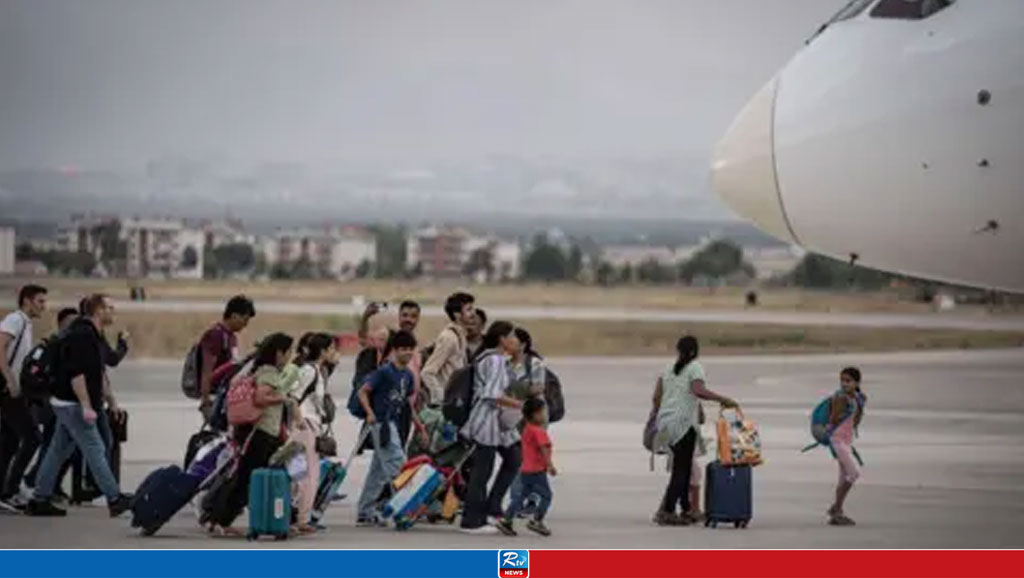


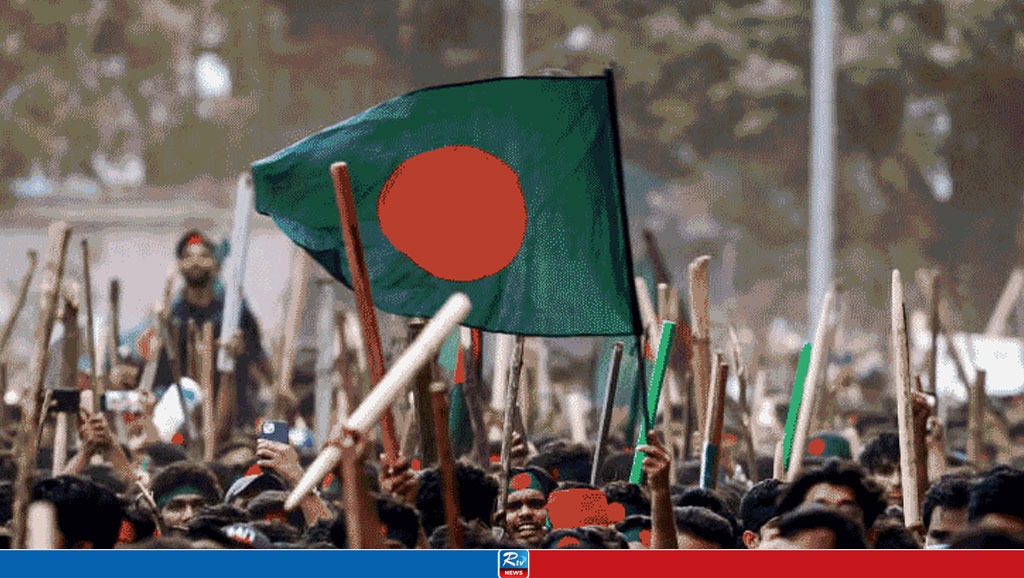
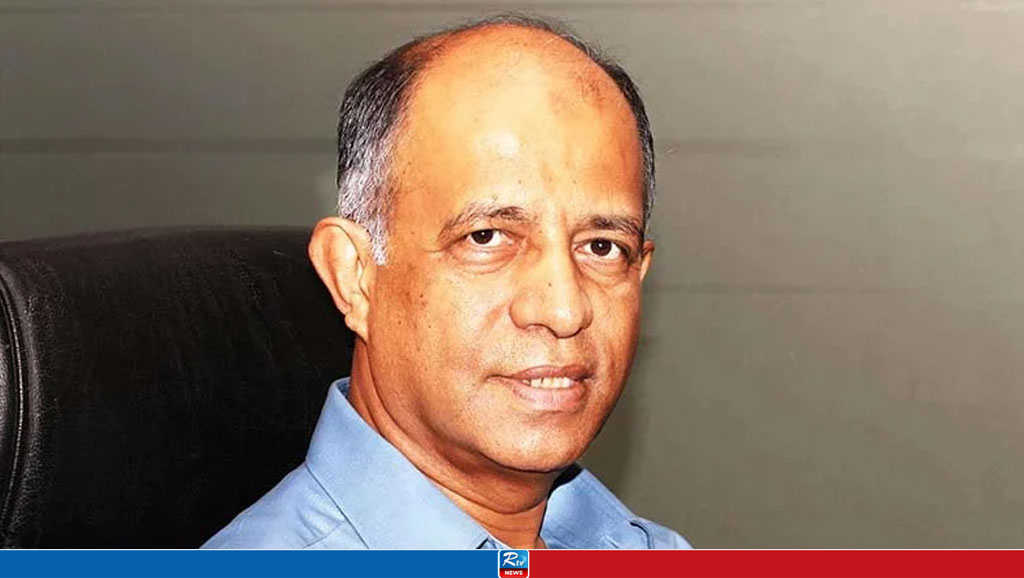
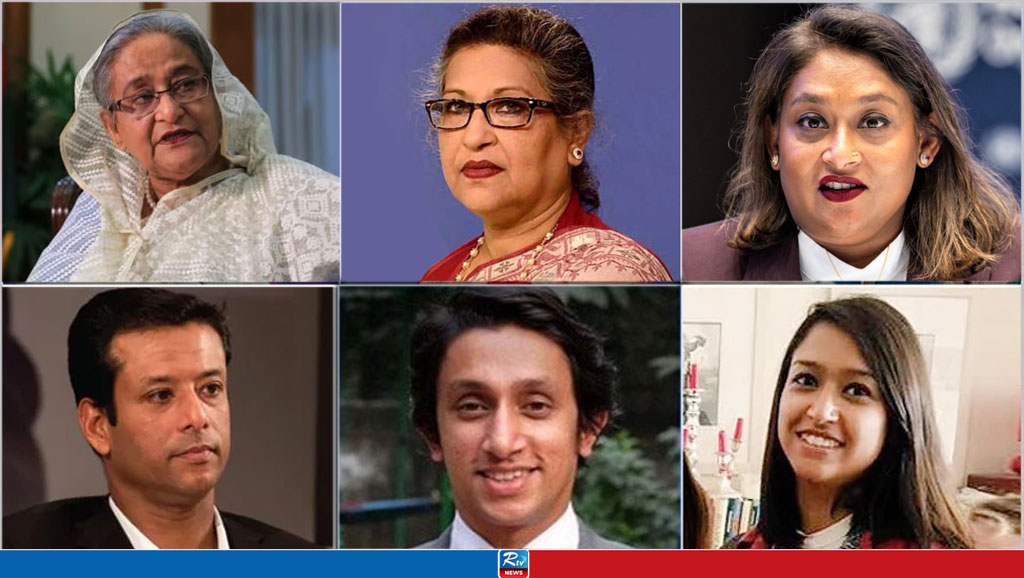
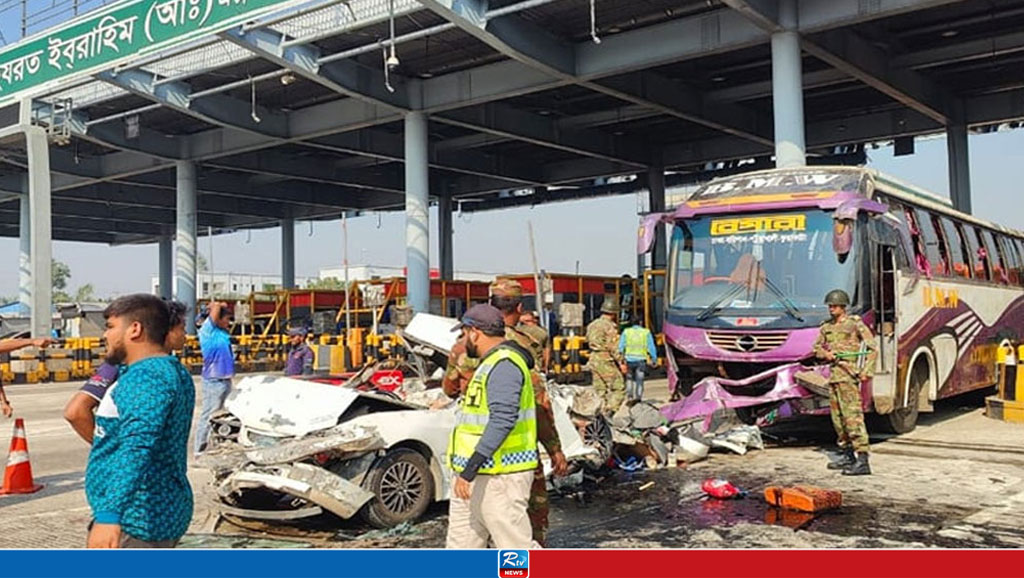


 Live Tv
Live Tv

